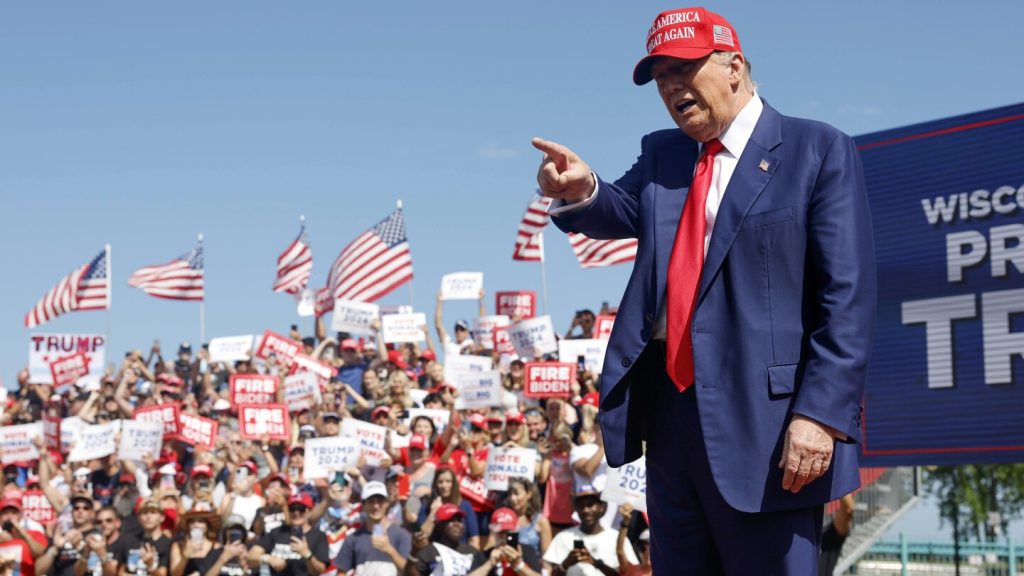Former President Donald Trump’s proposal to exclude tips from federal taxes is gaining support among Republican lawmakers, although questions remain about the impact of the policy. The proposal would affect millions of workers, including the 2.24 million waiters and waitresses in the U.S. Tips make up a significant portion of their income, and Trump’s plan aims to provide relief by eliminating taxes on tips.
Trump announced his tax-free-tips plan at a rally in Nevada, a battleground state in the 2020 election. The state has a high concentration of tipped workers, making it a key target for the Trump campaign. The proposal sets up a political contrast between Democrats who support increasing hourly wages and Republicans who believe tax cuts would benefit workers more. The Culinary Union in Nevada dismissed Trump’s plan as a campaign stunt, questioning the feasibility and effectiveness of the proposal.
The specifics of how the tax exemption on tips would work have not been detailed by Trump. It is unclear whether the exemption would apply only to income taxes or also to payroll taxes. A blanket exemption would mean more take-home pay for workers but could lead to larger budget deficits for the federal government. The Committee for a Responsible Federal Budget estimates that exempting tips from both income and payroll taxes could reduce federal revenues by $150 billion to $250 billion over the next decade.
Congress would need to consider the overall cost and implications of Trump’s proposal on tips as part of discussions about the 2017 Tax Cuts and Jobs Act. Lawmakers, including Rep. Vern Buchanan and Rep. Kevin Hern, are already preparing to address the proposal. However, there are concerns about the potential increase in federal deficits and reclassification of wages as tips. Some experts warn that tax-exempt tips could lead to unintended consequences, such as customers reducing gratuities and hindering efforts to increase minimum wages for tipped workers.
Democrats have criticized Trump’s proposal as a gimmick to win over voters, preferring to address low-wage working people by increasing the minimum wage for tipped workers. Senate Finance Committee members, including Sen. Debbie Stabenow and Sen. Ron Wyden, believe Trump’s focus on tax breaks for the wealthy and corporations undermines the proposal’s credibility. Despite the skepticism from Democrats, Trump’s enthusiasm for the idea seems to be growing, with support from GOP lawmakers and business leaders. Prominent Trump allies, such as Kid Rock, have endorsed the proposal, sparking discussions about the potential impact of exempting tips from federal taxes.














